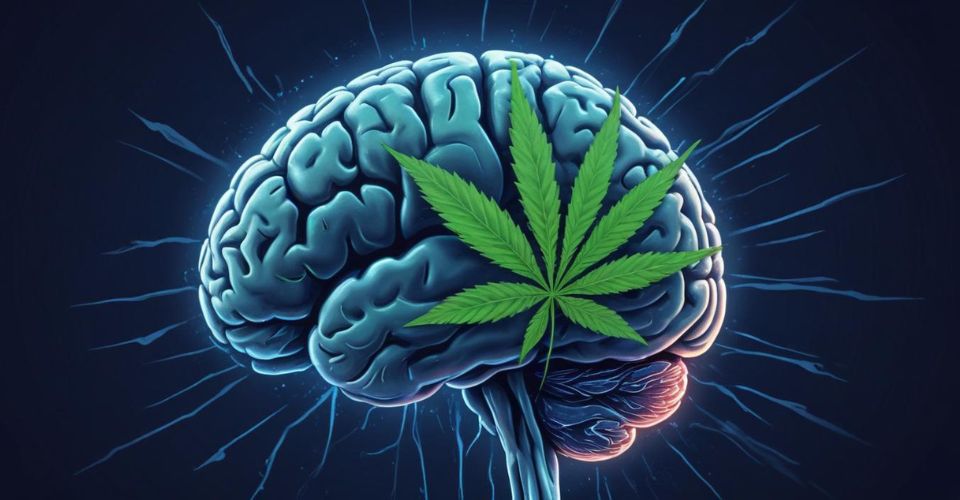In a recent meta-analysis published in the Journal of Psychopharmacology, researchers have unveiled promising findings regarding the potential of subanesthetic doses of ketamine for providing long-lasting, and rapid anxiety relief.
While this discovery holds considerable implications for the field of mental health, the study underscores the need for expanded research involving larger patient groups to establish a robust evidence base.
Ketamine, a dissociative anesthetic with a history of medical use spanning several decades, has garnered increasing attention in recent years for its potential therapeutic benefits beyond anesthesia.
Notably, research has pointed towards subanesthetic doses of ketamine as a potential game-changer in the treatment of depression, offering rapid and potent antidepressant effects.
Building on this momentum, scientists have now delved into its potential for mitigating anxiety-related disorders, including social anxiety disorder, obsessive-compulsive disorder (OCD), post-traumatic stress disorder (PTSD), and treatment-resistant anxiety.
The meta-analysis, which pooled data from multiple studies, has revealed a noteworthy trend: subanesthetic doses of ketamine demonstrate the capacity to swiftly and significantly reduce anxiety levels.
Patients in these studies reported experiencing relief within just a few hours after administration, with the benefits persisting for up to two weeks. This rapid onset of action stands in stark contrast to many conventional anxiety treatments, which often take weeks or even months to produce noticeable effects.
The implications of these findings are substantial, particularly in the context of mental health treatment. Anxiety disorders, which affect millions of individuals worldwide, can have a debilitating impact on daily life, leading to significant distress and impairment.
The possibility of achieving rapid anxiety relief could be a lifeline for those grappling with these conditions, offering hope for a more immediate improvement in their well-being.
However, while the results are promising, it is essential to approach them with caution. The meta-analysis highlights the critical need for further research, particularly involving larger and more diverse patient cohorts.
Although the findings indicate a potential breakthrough, a more comprehensive body of evidence is required to solidify the efficacy and safety of subanesthetic ketamine for anxiety relief.
One notable aspect of this research is the focus on conditions beyond depression. While ketamine’s antidepressant effects have been more extensively studied and even led to FDA-approved treatments, its potential for anxiety reduction remains somewhat less explored.
Study Suggests Use Of Ketamine For Rapid Anxiety Relief
This study sheds light on the growing interest in expanding the applications of ketamine in the mental health sphere.
Moreover, the meta-analysis underscores the urgency of addressing the limited treatment options available for individuals with anxiety disorders. Many individuals with conditions like social anxiety disorder, OCD, and treatment-refractory anxiety struggle to find relief through conventional therapies.
The prospect of a rapid-acting treatment could offer a ray of hope for these individuals, potentially transforming their lives.
Despite the optimism surrounding these findings, there are critical considerations regarding the administration of ketamine.
Subanesthetic doses of ketamine require careful monitoring and should only be administered by qualified healthcare professionals in controlled settings. Safety protocols, including appropriate dosing and patient assessment, are crucial to mitigate potential risks and adverse effects.
Additionally, the long-term effects and sustainability of anxiety relief through subanesthetic ketamine doses warrant further exploration.
While the meta-analysis suggests benefits lasting up to two weeks, it is essential to determine whether these effects can be extended or whether maintenance treatments are necessary to sustain the improvements.
In conclusion, the meta-analysis offers a glimpse into the promising potential of subanesthetic doses of ketamine for rapid and sustained anxiety relief.
However, the road ahead involves more extensive research, rigorous clinical trials, and a deeper understanding of the treatment’s safety and efficacy.
As the field of mental health continues to evolve, these findings open up new avenues of exploration and may ultimately lead to more effective and accessible treatments for anxiety-related disorders.




























